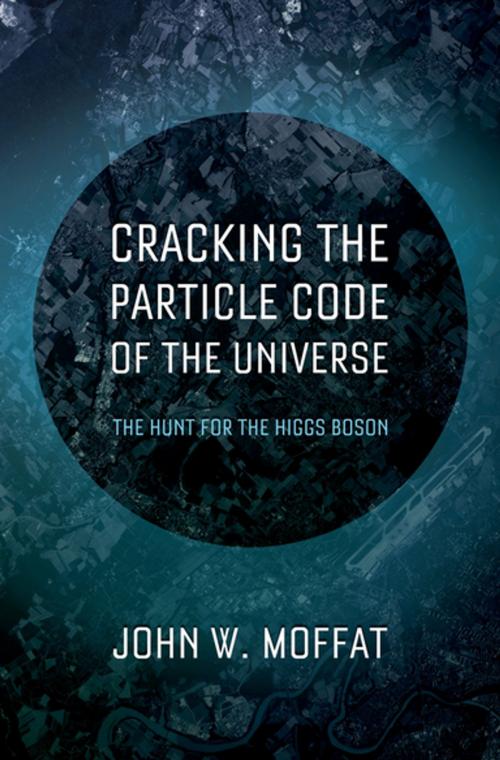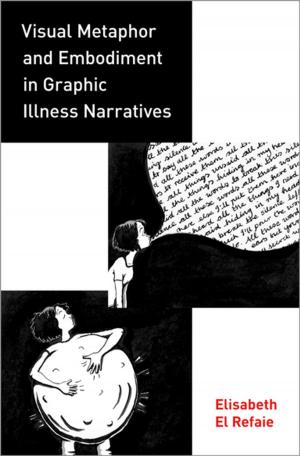Cracking the Particle Code of the Universe
Nonfiction, Science & Nature, Science, Physics, General Physics| Author: | John W. Moffat | ISBN: | 9780199384013 |
| Publisher: | Oxford University Press | Publication: | December 13, 2013 |
| Imprint: | Oxford University Press | Language: | English |
| Author: | John W. Moffat |
| ISBN: | 9780199384013 |
| Publisher: | Oxford University Press |
| Publication: | December 13, 2013 |
| Imprint: | Oxford University Press |
| Language: | English |
Among the current books that celebrate the discovery of the Higgs boson, Cracking the Particle Code of the Universe is a rare objective treatment of the subject. The book is an insider's behind-the-scenes look at the arcane, fascinating world of theoretical and experimental particle physics leading up to the recent discovery of a new boson. If the new boson is indeed the Higgs particle, its discovery represents an important milestone in the history of particle physics. However, despite the pressure to award Nobel Prizes to physicists associated with the Higgs boson, John Moffat argues that there still remain important data analyses to be performed before uncorking the champagne. John Moffat is Professor Emeritus of Physics at the University of Toronto and a senior researcher at the Perimeter Institute for Theoretical Physics. Well-known for his outside-the-box research on topics such as dark matter, dark energy, and the varying speed of light cosmology (VSL), his new book takes a critical look at the hype surrounding the Higgs boson. In the process, he presents a cogent and often entertaining history of particle physics and an exploration of alternative theories of particle physics that do not feature the Higgs boson, including his own. He gives a detailed and personal description of how theoretical physicists come up with new theories, and emphasizes how carefully experimental physicists must interpret the complex data now coming out of accelerators like the Large Hadron Collider (LHC). The book does not shy away from controversial topics such as the sociology of particle physics. There is immense pressure on projects like the $9 billion LHC to come up with positive results in order to secure funding for the future. Yet to date, the Higgs boson may be the only positive result to emerge from the LHC experiments. The searches for dark matter particles, mini-black holes, extra dimensions, and supersymmetric particles have all come up empty-handed, with serious consequences for theoretical physics, including string theory and gravity theory. John Moffat is also the author of Reinventing Gravity (2008) and Einstein Wrote Back (2010).
Among the current books that celebrate the discovery of the Higgs boson, Cracking the Particle Code of the Universe is a rare objective treatment of the subject. The book is an insider's behind-the-scenes look at the arcane, fascinating world of theoretical and experimental particle physics leading up to the recent discovery of a new boson. If the new boson is indeed the Higgs particle, its discovery represents an important milestone in the history of particle physics. However, despite the pressure to award Nobel Prizes to physicists associated with the Higgs boson, John Moffat argues that there still remain important data analyses to be performed before uncorking the champagne. John Moffat is Professor Emeritus of Physics at the University of Toronto and a senior researcher at the Perimeter Institute for Theoretical Physics. Well-known for his outside-the-box research on topics such as dark matter, dark energy, and the varying speed of light cosmology (VSL), his new book takes a critical look at the hype surrounding the Higgs boson. In the process, he presents a cogent and often entertaining history of particle physics and an exploration of alternative theories of particle physics that do not feature the Higgs boson, including his own. He gives a detailed and personal description of how theoretical physicists come up with new theories, and emphasizes how carefully experimental physicists must interpret the complex data now coming out of accelerators like the Large Hadron Collider (LHC). The book does not shy away from controversial topics such as the sociology of particle physics. There is immense pressure on projects like the $9 billion LHC to come up with positive results in order to secure funding for the future. Yet to date, the Higgs boson may be the only positive result to emerge from the LHC experiments. The searches for dark matter particles, mini-black holes, extra dimensions, and supersymmetric particles have all come up empty-handed, with serious consequences for theoretical physics, including string theory and gravity theory. John Moffat is also the author of Reinventing Gravity (2008) and Einstein Wrote Back (2010).















